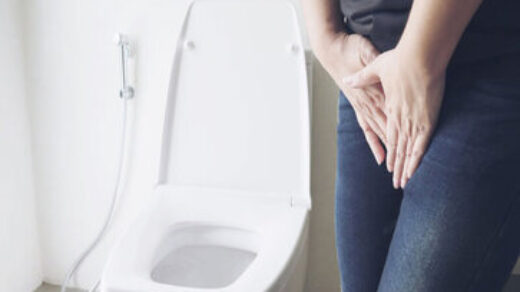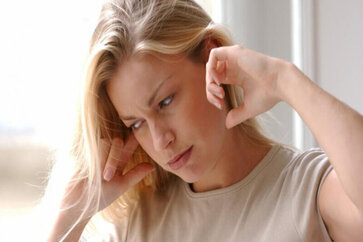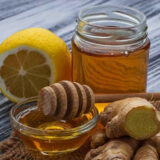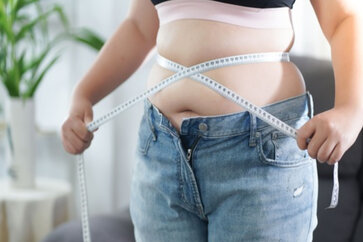Ayurvedic Medicine For Anxiety And Depression
Depression and anxiety often co-occur, as excessive mental stress can serve as a catalyst for these conditions. Stress is a natural physiological response to perceived threats, triggering the body’s defense mechanism known as the “fight-or-flight” reaction or stress response. 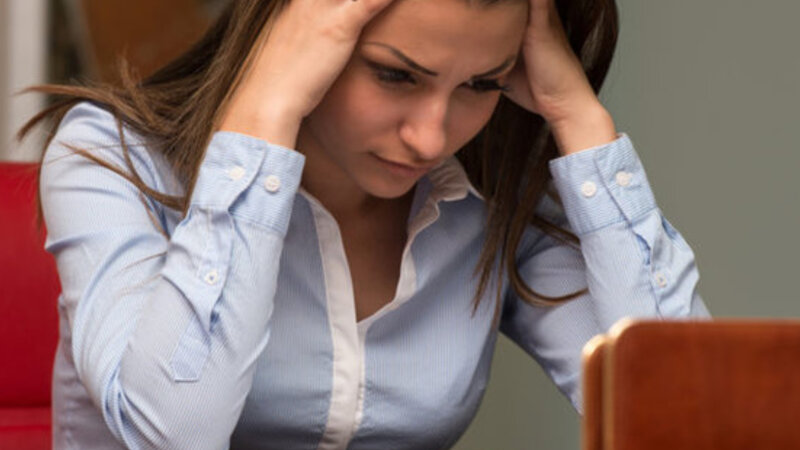
However, if stress remains unmanaged and becomes overwhelming, it can contribute to various illnesses, including mental disorders like depression and anxiety. Ayurvedic massage therapies have been recognized as a safe and effective treatment option for these mental disorders, backed by substantial evidence.
Effects Of Stress On The Body?
When you experience stress, your body undergoes specific reactions. The nervous system releases stress hormones like adrenaline and cortisol when it senses a threat.
This hormonal surge aims to make your body more alert and responsive. However, chronic or frequent stress can have negative consequences. Elevated levels of cortisol, in particular, can have various detrimental effects on the body.
Increased cortisol has been linked to high blood pressure, imbalanced blood sugar levels, muscle stiffness, and elevated heart rate. These physiological effects can contribute to health problems such as pain, fatigue, weakened immunity, sleep disturbances, depression, and anxiety.
What Is Ayurveda Treatment Approach to Depression and Anxiety?
Ayurveda adopts a specific treatment approach for addressing depression and anxiety. According to Ayurvedic principles, depression arises from an imbalance in Kapha, which further disrupts Vata and aggravates Pitta. This imbalance interferes with the normal functioning of the nervous system, leading to depression.
In Ayurvedic therapy for stress and anxiety reduction, the process typically begins with comprehensive counseling to assess the patient’s detailed history. This includes examining their diet and recommending lifestyle modifications. Alongside these measures, the practice of yoga and pranayama (controlled breathing exercises) in conjunction with Ayurvedic therapies has shown to be beneficial in either reversing or halting the progression of these conditions.
How Do The Ayurvedic Treatments For Depression And Anxiety Work?
The Ayurvedic treatments for depression and anxiety operate based on the concept that an imbalance in Prana Vayu disrupts the normal functioning of the nervous system, leading to mental disturbances. Therefore, the aim of Ayurvedic treatments for depression and anxiety is to restore balance and pacify the aggravation of Vata, thus promoting the restoration of normal functions.
Ayurveda offers a range of therapies that are known to effectively manage anxiety, and these therapies are considered safe and proven. Among them, Shirodhara and Nasyam have been identified as particularly effective in addressing anxiety.
Shirodhara involves the gentle pouring of warm oil or herbal decoctions onto the forehead, stimulating vital centers and promoting relaxation. Nasyam, on the other hand, involves administering herbal oils or powders through the nasal passage, which also helps in balancing Vata.
These therapies aim to nourish the brain and improve existing conditions by providing proper stimulation and support to the vital centers. Additionally, Ayurvedic medicines enriched with calcified butter are used to cross the blood-brain barrier and provide nourishment to the brain, further aiding in the management of depression and anxiety.
Ayurvedic Treatment for Depression and Anxiety
Here are six effective Ayurvedic approaches to combat and overcome depression and anxiety:
1. Shirodhara
Shirodhara is a therapeutic massage that involves the gentle and continuous pouring of medicated oil, decoctions, buttermilk, or water onto the forehead in a pendulum motion. Its primary goal is to induce relaxation and alleviate stress.
During Shirodhara, the continuous pouring of oil onto the forehead stimulates and calms the hypothalamus, which can help promote better sleep and reduce stress levels. The duration of the therapy typically ranges from 30 to 60 minutes, depending on the individual’s condition. Additionally, a gentle head massage may be provided before or during the procedure to enhance its benefits.
Shirodhara offers several advantages, including boosting the immune system and improving blood circulation in the head and face. It is also known to be effective in treating hypertension and related conditions.
2. kizhi Therapy
Kizhi is a therapeutic technique that aims to improve circulation and reduce oxidative stress, thereby alleviating the psycho-physical symptoms associated with stress.
This therapy involves the use of small satchels made from muslin cloth filled with powders, herbs, rice, or sand. These satchels are heated and gently pounded over the body or specific areas as required.
Kizhi massage provides dry heat, which is particularly beneficial for addressing imbalances related to aggravated Vata and Vatakapha conditions. It has been found to be an effective treatment for various conditions, including depression, anxiety, muscular cramps, swelling, obesity, lower back pain, diabetes, osteoarthritis, and spondylosis.
3. Pizhichil
Pizhichil is a therapeutic treatment that involves the application of warm medicated oils to help recalibrate the body’s systems, inducing both physical and mental relaxation. This Ayurvedic treatment is particularly effective in addressing the stress and tension that accumulate in the body due to various factors, ultimately reducing oxidative stress.
The Pizhichil treatment begins with a gentle and synchronized massage performed on all parts of the body, excluding the head. A cloth soaked in lukewarm herbal oil is squeezed over the patient’s body, followed by oil rubbing. This process of dipping the cloth in medicated herbal oil is repeated periodically throughout the procedure, which typically lasts for about an hour.
Pizhichil rejuvenates the body and enhances the functioning of the nervous system. It helps reduce Vata dosha, tension, anxiety, depression, muscular aches, rheumatic problems, insomnia, and sexual problems. Additionally, it promotes blood circulation, resulting in toned and healthier skin.
4. Nasyam therapy
Nasyam is an integral part of Panchakarma therapy, which involves the administration of medicated oils or drugs through the nostrils. This treatment aims to stimulate the vital centers of the brain to address issues such as stress, anxiety, depression, and insomnia.
The Nasyam procedure typically begins with a facial massage or steam application to the face, forehead, ears, and neck. Following this, a therapist carefully instills herbal oils, juices, or powders into the nasal passages. These substances then spread through the venous (blood circulation) and nervous systems, reaching the surrounding areas of the nostrils. To conclude the therapy, the patient is given lukewarm water for gargling and may inhale medicated smoke.
Nasyam therapy is effective in treating disorders related to the ear, nose, and throat. It helps unblock energy channels and alleviates conditions like depression, anxiety, and headaches. Furthermore, it contributes to boosting immunity and improving eye health.
5. Padabhyangam
Padabhyangam is an Ayurvedic massage technique that focuses on stimulating nerve endings and vital pressure points in the feet to restore balance to the Doshas. This massage not only enhances physical well-being but also promotes mental calmness, relieving stress and anxiety.
During the Padabhyangam session, a therapist applies herbal oils to the feet using precise hand movements. This action improves blood circulation in the lower legs, revitalizing tired feet and providing a sense of rejuvenation.
Padabhyangam is known to effectively address psychological disorders such as nervousness, anxiety, and insomnia while also serving as a preventive measure against depression. Additionally, this massage technique helps prevent muscle cramps, enhances fertility, and reduces swelling and pain in the lower leg region.
6. Abhyangam
Abhyangam is a therapeutic practice that involves a full body massage using medicated herbal oils. The purpose of Abhyangam therapy is to enhance blood circulation, eliminate metabolic wastes, and toxins from the body. It also stimulates vital pressure points, promoting nervous system stimulation and reducing stress, anxiety, and depression.
During Abhyangam, two therapists work in a synchronized manner to apply herbal oils throughout the individual’s body, from head to toe, using rhythmic movements and appropriate pressure. The massage session typically lasts for 45-50 minutes, with the person being positioned in seven different postures.
Abhyangam plays a crucial role in balancing the Doshas and addressing mental, emotional, and physical disorders. It boosts the immune system, contributes to overall well-being, and serves as a preventive measure against stress and depression. Additionally, this therapy has shown effectiveness in managing conditions such as insomnia, paralysis, arthritis, and spondylosis.
Note: Ayurvedic therapies offer a holistic approach to managing depression and anxiety. These therapies aim to restore balance to the body and mind, addressing the underlying causes of these mental disorders.
Treatments such as Shirodhara, Kizhi, Pizhichil, Nasyam, Padabhyangam, and Abhyangam provide various benefits, including stress reduction, relaxation, improved circulation, and stimulation of vital centers.
By incorporating Ayurvedic treatments into a comprehensive treatment plan, individuals can experience relief from symptoms of depression and anxiety.
It is important to consult with qualified Ayurvedic practitioners who can tailor the therapies to individual needs and ensure their safe and effective implementation.

